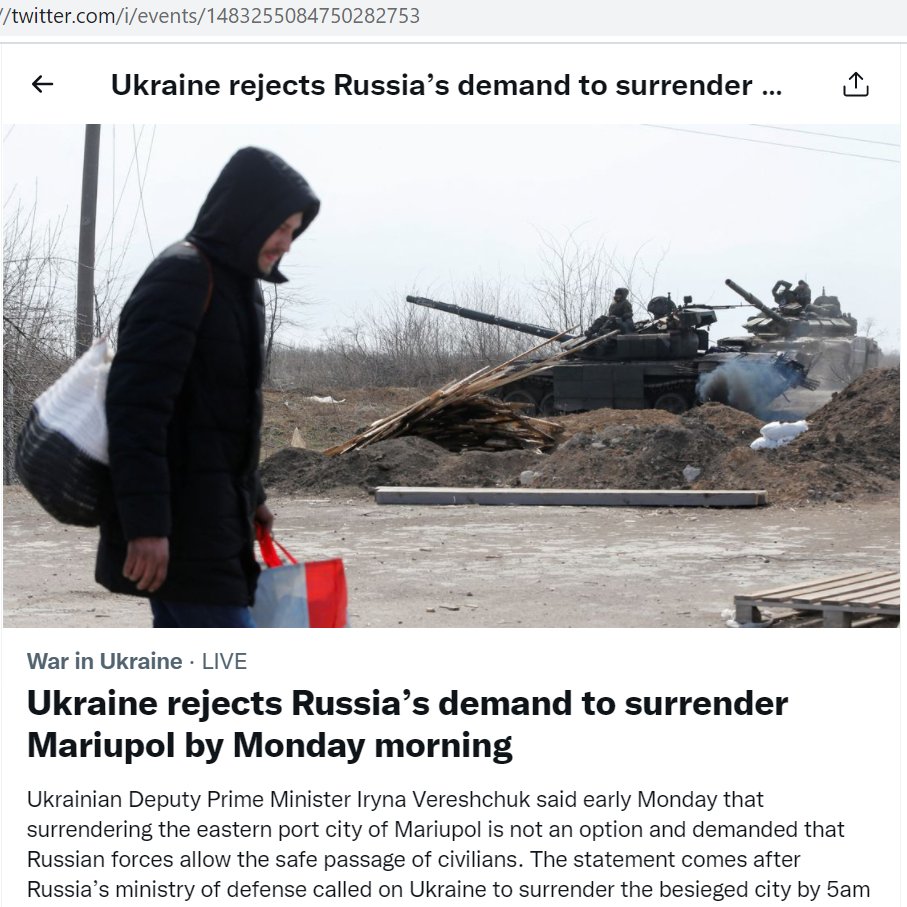
A thread about how we report supposed victories in war (this one and others), why they dont matter nearly as much as people claim, and how they actually deceive us into understanding what really matters. Partly motivated by this @nytimes headline. 
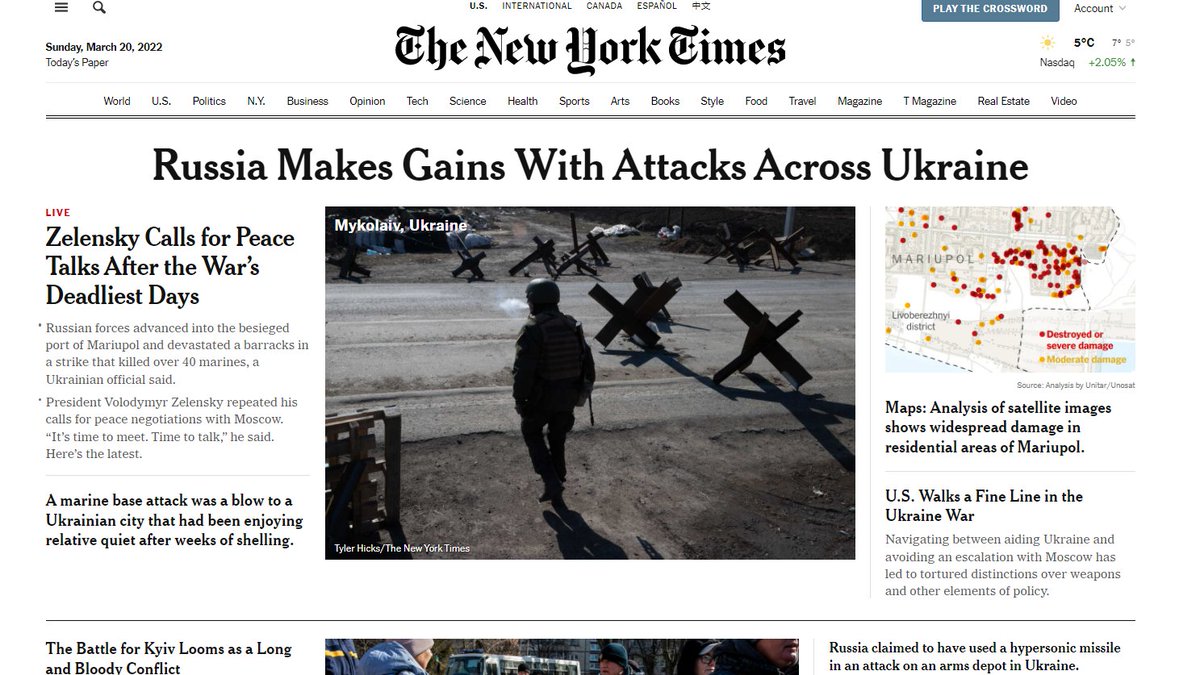
The New York Times is reporting this morning that the Russians are making 'significant' gains in Ukraine. In specific they are pushing into Mariopul, and they have hit two Ukrainian military facilities with long-range missile bombardment. Pretty dramatic and breathless stuff. 

However, these are within the course of the war either unimportant, or actually signs of Russian defeats. In particular the attack on Mariopul. This is a humanitarian disaster and war crime, first and foremost. Militarily its a sign of Russian defeat, even if they seize the city.
The Russians have been besieging the city for weeks, have suffered significant attritional losses there. Even if they take the city, they will have to deploy significant forces to hold it. The whole campaign has been an indicator of Russian strategic failure.
Its worth taking a look at a more cogent analysis of what the campaign in Mariopul actually means, by the Institute for the Study of War. The siege of Mariopul has weakened the Russian campaign--portraying them taking the city as a sign of success is bonkers. 

Now the missile strikes which have supposedly had 'devastating' impact. There was the barrage earlier in the week that hit Ukrainian logistical facilities in the west (weapons storage) and the very recent attack on the Marine Base near Mykolaiv 
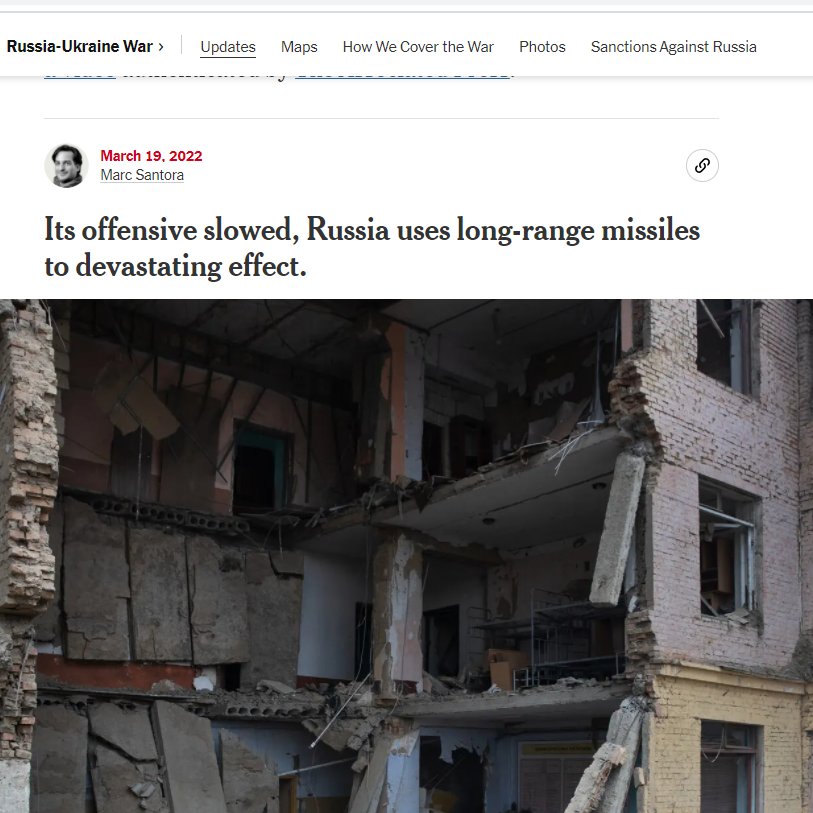
Do these matter, sure. Are they signs of dramatic events that are turning the war--no. Indeed their drama comes from pictures as much as anything else.
The attacks on the west might cause problems, but so far Ukrainian resupply seems to be occurring pretty regularly, and in the scheme of things Ukraine is being sent so many new weapons and advanced weapons systems, that the destruction of one depot should make little difference.
Its worth noting that none of the reports can actually name specifics of what are damaged. WIthout an idea of real losses, these claims are dramatic hot air.
Then there was the attack on the Marine Base near Mykolaiv. That looks to have levelled a good deal of the facility and killed a large number of Ukrainian marines. The number varies between 'dozens' to 80. The whole facility only held 200 marines. 
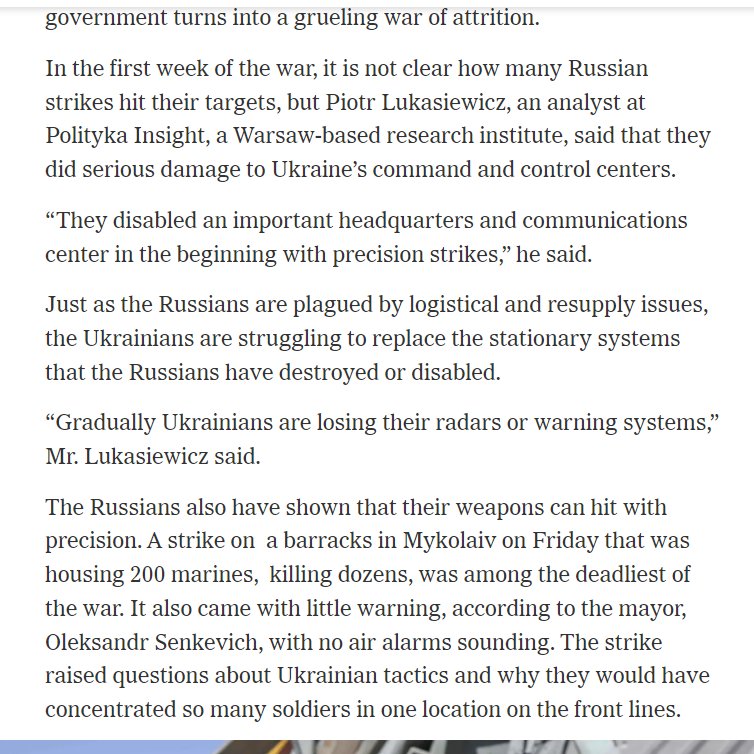
Losing 80 Marines is terrible, but the Russians are losing approximately 1300 soldiers and a regular supply of trucks and AFV every day. Why therefore should this one attack be considered significant? Ans: it shouldnt unless it was part of an overall increase in Ukrainian losses.
The big meta stories in the war over the last few days are not to be affected by the stories that the NY Times and others see as signs of great successes. What is not being reported is the steady attritional Russian losses in transport, soldiers and AFV. That tells the real story
Analysts retweeting the worst war porn from the Mykolaiv assault as if somehow to make a point about Russian success, might think about what they are doing. @KofmanMichael has linked to some of the most terrible pictures with a claim that its a 'disaster' for Ukraine. 
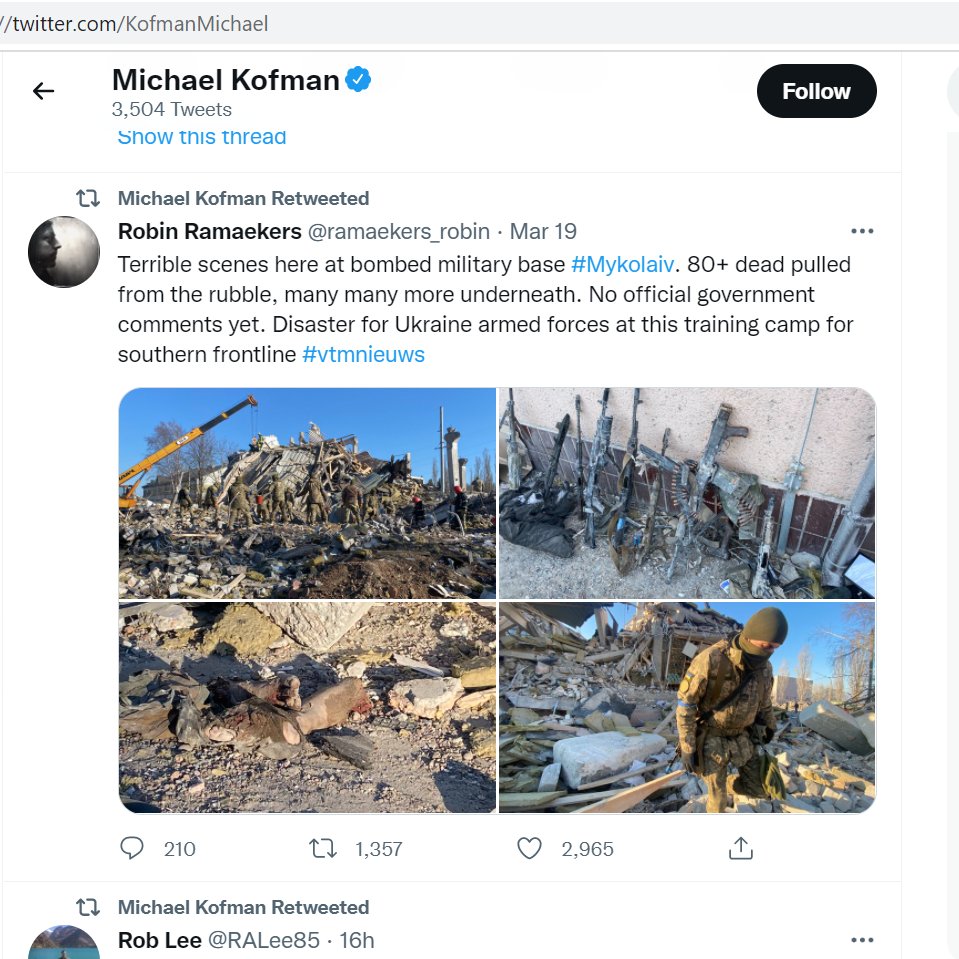
Will not link to these pictures because they are grotesque but here is a screenshot of the tweet. I would like an explanation of how this is such a great disaster for the Ukrainian military in an overall sense.
So, the sensational stories can be compelling and horribly eye-catching. But they distort more than convince in describing where we are in the war right now.
Looks like the @nytimes might have realized a need to change the narrative
https://twitter.com/CathyYoung63/status/1505459987971293189
Btw, this thread is not a specific dump on the New York Times. Much of their reporting has been really good. It’s generally a critique of how the media reports on war with a focus on the visual and dramatic. So using it as an excuse to hammer one paper misses the point
Later today will try to explain the vision of war that has developed in my research to better explain what I think matters.
Attaching this here.
https://twitter.com/PhillipsPOBrien/status/1505563536403091464?s=20&t=8nvsmSl2BeL32bc0mPJ_qQ
• • •
Missing some Tweet in this thread? You can try to
force a refresh




